SCTP - Cybersecurity
- Home
- SkillsFuture Career Transition Programme (SCTP)
- SCTP - Cybersecurity Associate
Cybersecurity Associate

As cyber threats become more sophisticated, the demand for skilled cybersecurity professionals is on the rise. The program addresses the latest trends, focusing on the essentials of cybersecurity, ethical hacking, SOC operations, and practical skills through a capstone project.
What do Cybersecurity Associates do?
Cybersecurity Associates play a pivotal role in safeguarding digital assets. They install, configure, troubleshoot, and secure IT systems, networks, and data. They analyze threats, implement security measures, and contribute to the resilience of organizations against cyber threats.
Upon completing the (SCTP) Cybersecurity Associate program, individuals are well-prepared to take on various roles in the cybersecurity domain as below:
- Cybersecurity Analyst/Engineer
- Network Security Specialist
- Security Operations Center (SOC) Analyst
- IT Security Consultant
- Ethical Hacker/Penetration Tester
- Identity and Access Management (IAM) Specialist
- Security Operations Center (SOC) Manager
- Cybersecurity Project Manager
Responsibilities
-
Cybersecurity Analyst/Engineer
- Implement and monitor security measures to protect computer systems and networks.
- Conduct security assessments and vulnerability scans.
- Respond to and mitigate security incidents.
- Install and configure security systems and tools.
-
Network Security Specialist
- Design, implement, and manage security measures for networks.
- Analyze and troubleshoot network security issues.
- Implement firewalls, VPNs, and other network security technologies.
- Monitor network traffic for potential security threats.
-
Security Operations Center (SOC) Analyst
- Monitor and analyze security alerts from various sources.
- Investigate and respond to security incidents.
- Deploy and manage security information and event management (SIEM) tools.
- Collaborate with other cybersecurity professionals.
-
IT Security Consultant
- Advise organizations on best practices for securing their IT infrastructure.
- Conduct security assessments and audits.
- Develop and implement security policies and procedures.
- Provide recommendations for improving overall cybersecurity posture.
-
Ethical Hacker/Penetration Tester
- Conduct authorized penetration testing to identify vulnerabilities.
- Evaluate and assess systems for potential security risks.
- Develop and execute penetration testing methodologies.
- Generate detailed reports on vulnerabilities and recommended remediation.
-
Identity and Access Management (IAM) Specialist
- Design and implement IAM solutions.
- Analyze and manage user access to systems and data.
- Ensure compliance with identity security policies.
- Evaluate and implement IAM cloud solutions.
-
Security Operations Center (SOC) Manager
- Oversee the end-to-end SOC workflow.
- Manage SOC processes and personnel.
- Collaborate with CSIRT (Computer Security Incident Response Team).
- Develop and improve incident response processes.
-
Cybersecurity Project Manager
- Plan, execute, and oversee cybersecurity projects.
- Coordinate with various stakeholders to ensure project success.
- Manage project budgets, timelines, and resources.
- Communicate project status and risks.
Average salary

$50,000.00 - $160,000.00+
per year1 for Cybersecurity Associates
Skills Required for this Role
|
Technical Skills & Competencies |
Generic Skills & Competencies |
|
|
Career Support
Career Agility Hub
Enjoy access to NTUC LHUB’s Career Agility Hub (CAH) throughout the SCTP programme. This recruitment platform offers over 100,000 jobs across sectors and levels, along with updates on job fairs and industry events.
Continued Career Support
Tap on career coaching and placement support services provided by NTUC LHUB and its network of partners. Additionally, enjoy continued access to CAH and receive announcements of curated jobs and job fairs via email.
- Singapore Citizens, Singapore permanent residents, and holders of Long-Term Visit Pass plus (“LTVP+ Holders”) who are aged 21 years old and above
- Committed to complete the programme
- Minimum Diploma in IT/Computer Science.
- Be able to speak, listen, read, and write English at a proficiency level equivalent to the Employability Skills Workforce Skills Qualification (ES WSQ) Workplace Literacy (WPL) Level 5.
- Be able to manipulate numbers at a proficiency level equivalent to ES WSQ Workplace Numeracy (WPN) Level 6.
- Well versed in all Microsoft Office applications, especially Excel, Word, PowerPoint, and Outlook.
- Experience in good interpersonal, verbal, and written communication skills.
- Displays willingness to learn and advance in technical skillsets and knowledge.
- Strong communication skills and problem-solving skills.
- Must be highly motivated.
- Ability to multitask.
- Ability to work in a team environment.
- Maintains high integrity and displays reliability.
- Committed to completing the program.
- Interested participants should apply for the programme.
- Shortlisted candidates will be called for a 15-minute face-to-face or virtual interview.
Training methodology

Instructor-led Virtual Training
Lecture and activity-based training with certified Trainers

Online Learning
Self-paced learning via e-learning platforms

Portfolio Building
Create a winning portfolio filled with hands-on projects that will help you shine in interviews.

Mentorship
Your mentor is your partner-in-Project Management. They are instructors and industry practitioners dedicated to your future success.
Duration & learners schedule

Total duration: 296 hours / 4.5 months (full-time) / 9 months (part-time)
This programme is offered in both full-time and part-time programme, trainees have upto 4.5 months and 9 months(part-time) respectively to complete the programme.
List of Courses to Attend
This course is intended for entry-level computer support professionals with a basic knowledge of computer hardware, software, and operating systems who wish to increase their knowledge and understanding of networking concepts and acquire the required skills to prepare for a career in desktop support or administration.
Course ObjectivesIn this course, learners will learn how to install, configure, optimize, troubleshoot, repair, upgrade, and perform preventive maintenance on personal computers, digital devices, and operating systems.
- Support operating systems.
- Install and configure PC system unit components and peripheral devices.
- Install, configure, and troubleshoot display and multimedia devices.
- Install, configure, and troubleshoot storage devices.
- Install, configure, and troubleshoot internal system components.
- Install, configure, and maintain operating systems.
- Maintain and troubleshoot Microsoft Windows.
- Explain network infrastructure concepts.
- Configure and troubleshoot network connections.
- Manage users, workstations, and shared resources.
- Implement client virtualization and cloud computing.
- Implement physical security.
- Secure workstations and data.
- Troubleshoot workstation security issues.
- Support and troubleshoot laptops.
- Support and troubleshoot mobile devices.
- Install, configure, and troubleshoot print devices.
- Implement operational procedures.
This course is intended for entry-level computer support professionals with a basic knowledge of computer hardware, software, and operating systems who wish to increase their knowledge and understanding of networking concepts and acquire the required skills to prepare for a career in network support or administration.
Course ObjectivesIn this course, learners will be able to describe the major networking technologies and systems of modern networks, and configure, manage, and troubleshoot modern networks.
- Identify basic network theory concepts and major network communications methods.
- Describe bounded network media.
- Describe unbounded network media.
- Identify the major types of network implementations.
- Identify TCP/IP addressing and data delivery methods.
- Analyze routing and switching technologies.
- Identify the components of a TCP/IP implementation.
- Analyze network security.
- Implement network security.
- Identify the components of a WAN implementation.
- Identify the components used in cloud computing and virtualization.
- Identify the components of a remote network implementation.
- Manage networks.
- Troubleshoot network issues.
This is a foundational course for IT professionals who intend to pivot to a Cybersecurity role. It establishes the core knowledge required of any cybersecurity role and provides a springboard to intermediate-level cybersecurity jobs.
Course ObjectivesUpon completing the course, learners will be able to:
- Compare security roles and security controls
- Explain threat actors and threat intelligence
- Perform security assessments and identify social engineering attacks and malware types
- Summarize basic cryptographic concepts and implement public key infrastructure
- Implement authentication controls
- Implement identity and account management controls
- Implement secure network designs, network security appliances, and secure network protocols
- Implement host, embedded/Internet of Things, and mobile security solutions
- Implement secure cloud solutions
- Explain data privacy and protection concepts
- Perform incident response and digital forensics
- Summarize risk management concepts and implement cybersecurity resilience
- Explain physical security
This course helps to provide learners the necessary skills with hands-on experience in configuring, monitoring, and supporting servers running the Linux OS. Learners are taught on how to utilize Linux-based systems, whether they are managing infrastructure, cloud workflows, or ensuring the cybersecurity of their organization.
Course ObjectivesIn this course, students will learn the background knowledge and skills necessary to administer, troubleshoot, install or maintain Linux.
Concepts covered include:
- System Configuration
- The Command Line Interface
- Scripting Basics
- Network Settings and Services
- System Security
This course will show learners how to analyze the functions of ‘assets’ in an IAM system, as well as the impact of perimeter security management (in other words, securing the network’s servers, workstations, and databases with a variety of tools). Other important factors such as governance, organizational process, and standard approaches in IAM are also broken down for easier understanding.
Course ObjectivesUpon completing the course, students will be able to:
- Understand the need for a modern identity and access security perimeter
- Understand information security transformation
- Understand the Key Challenges and Strategic Opportunities
- Understand the need for securing identity systems
- Understand the Unified identity governance architecture and integration plans
- Understand the implementation architecture of Identity and Access Management
- Learn different Identity & Access Management Technologies and Tools
- Understand IAM cloud implementations
- Learn from the IAG, CIAM, and Identity Proofing use cases
- Understand the Common Issues in Identity and Access Management
- Understand the challenges of identity and access in the cloud
- Learn to build your own identity and access management strategy
- Learn to Measure Identity and Access Management performance
This course provides comprehensive training, hands-on learning labs, practice cyber ranges for engagement, certification assessments, cyber competitions, and opportunities for continuous learning into one comprehensive program curated through our new learning framework: 1. Learn 2. Certify 3. Engage 4. Compete. It also equips aspiring cybersecurity professionals with the tactics, techniques, and procedures (TTPs) to build ethical hackers who can uncover weaknesses in nearly any type of target system before cybercriminals do.
Course ObjectivesUpon completing the course, students will be able to:
- Carry out threat modeling and secured source code review
- Conduct authorized penetration testing of systems consisting of a range of penetration testing methodologies, tools, and techniques
- Use a suite of network monitoring and vulnerability scanning tools to assess threats and vulnerabilities in a system
- Identify vulnerability exploitations and potential attack vectors into a system
- Analyze vulnerability scan results to size and assess security loopholes and threats
- Evaluate if current systems can overcome emerging threats and hacking techniques
- Assess current security practices and controls against expected performance parameters or guidelines
- Develop a vulnerability assessment and penetration testing report, highlighting key threats and areas for improving system security
- Understand process and techniques for secured source code review
- Identify threat modeling techniques
- Discover penetration testing techniques and methodologies
- Identify penetration testing tools and their usage
- Understand network monitoring tools and their usage
- Understand vulnerability assessment tests and interpretation of results
- Identify range and types of security loopholes and threats
This course covers the fundamentals of SOC operations, before relaying the knowledge of log management and correlation, SIEM deployment, advanced incident detection, and incident response. Additionally, the candidate will learn to manage various SOC processes and collaborate with CSIRT at the time of need.
Course Objectives- Gain understanding of End-to-End SOC Workflow
- Learn Incident Detection with SIEM
- Learn Enhanced Incident Detection with Threat Intelligence
- Gain understanding of Incident Response Process
This is a comprehensive training program designed to equip trainees with practical skills and knowledge through exposure to real-world case studies. This course is structured to provide a hands-on learning experience, enabling trainees to apply theoretical concepts to practical scenarios, thereby enhancing their understanding and proficiency.
Course Objectives- Analyse case studies in Cybersecurity
- Extract, articulate and document requirements
- Gain practical skills that can be applied in real-life scenarios
- LO1: Introduction to Data Analytical tools and techniques
- LO2: Recognize Pattern
- LO3: Develop Insight
- LO4: Create Story
Certifications
Participants will be awarded with NTUC LHUB Certificate of Completion and this programme will also help participants to prepare for the following globally recognized certifications:
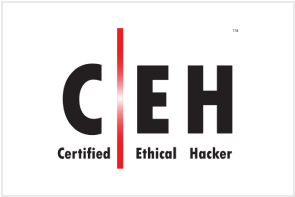
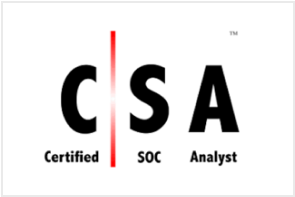
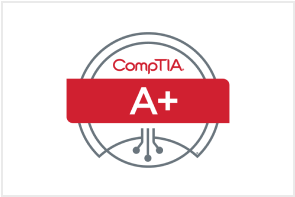
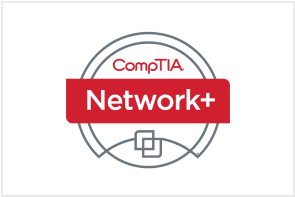
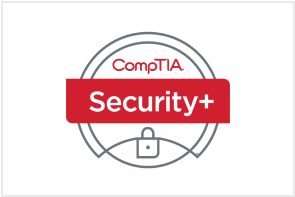
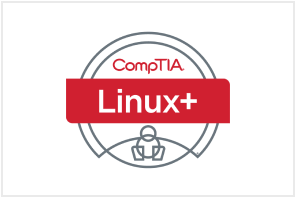
EC-Council – Certified Ethical Hacker and Certified SOC Analyst
|
Payments received by NTUC LHUB from 1st January 2024 (9% GST applies) |
||
|
|
Before GST |
After GST* |
|
Full Course Fee |
$15,850.00 |
$17,118.00 |
|
Singapore Citizens and Singapore Permanent Residents aged 21 years and above 1 (70% funding) |
$4,755.00 |
$5,182.95 |
|
Singapore Citizens aged 40 years and above 2 (after 90% funding) |
$1,585.00 |
$2012.95 |
|
Singapore Citizens eligible for Additional Funding Support 3 (after 95% funding) |
$792.50 |
$1220.45 |
*GST payable for all funding-eligible applicants: $380.40 (As per SSG’s policy, the GST payable is calculated based on prevailing rates of 9% after the baseline funding subsidy of 70%).
- Base Subsidy - Eligible Singapore Citizens and PRs aged 21 years and above can enjoy subsidies up to 70% of the course fee.
- Mid-career Enhanced Subsidy (MCES) – Eligible Singapore Citizens aged 40 and above can enjoy subsidies up to 90% of the course fee.
-
Additional Funding Support (AFS)- Eligible Singapore Citizens that meet at least one of the following eligibility criteria can enjoy subsidies up to 95% of the course fee:
- Long-term unemployed individuals (unemployed for six months or more); or
- Individuals in need of financial assistance – ComCare Short-to-Medium Term Assistance (SMTA) recipients or workfare Income Supplement (WIS) recipients; or
- Persons with Disabilities
Funding Eligibility Criteria
- Trainee must be a Singapore Citizen, Singapore Permanent Resident, or LTVP+ Holder aged 21 years old and above
- From 1 October 2023, attendance-taking for SkillsFuture Singapore's (SSG) funded courses must be done digitally via the Singpass App. This applies to both physical and synchronous e-learning courses.
- Trainee must achieve at least 75% attendance for each module
- Trainee must pass all prescribed tests/ assessments and attain 100% competency.
- NTUC LearningHub reserves the right to claw back the funded amount from trainee if he/she did not meet the eligibility criteria.

